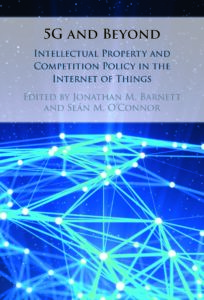
It was my pleasure to participate in a panel session on “SEP Current & Proposed Regulations” last month at the George Mason University Antonin Scalia Law School Center for Intellectual Property x Innovation Policy (C-IP2) Annual Fall Conference entitled “The Importance of Exclusive Rights.” Read more

 Artificial Intelligence and Big Data
Artificial Intelligence and Big Data By Wade Cribbs
By Wade Cribbs Following the Supreme Court’s four decisions on patent eligibility for inventions under
Following the Supreme Court’s four decisions on patent eligibility for inventions under  By
By  It’s been one year since the Supreme Court’s decision in Alice Corp. v. CLS Bank. On its face the
It’s been one year since the Supreme Court’s decision in Alice Corp. v. CLS Bank. On its face the